Photo credit: Krakakoa
Krakakoa, a craft chocolate social venture, trains and equips cocoa farmers in Indonesia with the skills and resources to improve their livelihoods and protect the environment through sustainable and organic farming methods.
The farmer-to-bar chocolatier produces artisanal chocolate from 100% Indonesian cocoa beans, bought from the smallholder farmers they train with a premium paid on top of the fair trade minimum price.
With an exquisite packaging reflective of the country’s cultural and ethnic diversity, each chocolate bar is infused with the unique spices and flavors characteristic of the Indonesian archipelago, including chili, sea salt, salted cashew, coconut brittle or cinnamon.
Reforming Indonesia’s ailing cocoa industry
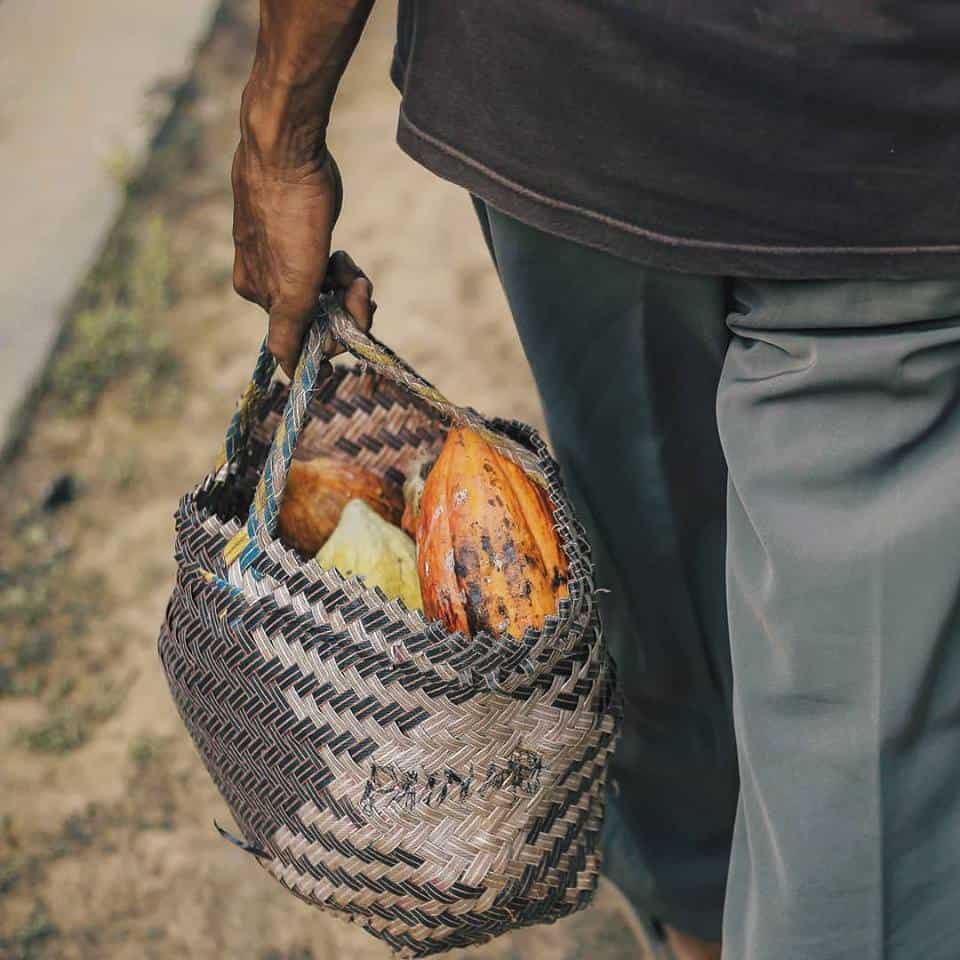
Sabrina Mustopo, Founder of Krakakoa and a former management consultant with McKinsey, advised companies around the world, including Papua New Guinea, Ethiopia and her native Indonesia, on sustainable agriculture, devising strategies to reduce deforestation and increase farming efficiency.
She was acutely aware that despite its great potential, cocoa farming in her resource-rich country is plagued by wasteful and inefficient harvesting, a multitude of crop diseases and unpredictable weather conditions aggravated by climate change.
Indonesia is the world’s third largest cocoa producer after Costa Rica and Ghana, but Indonesian beans are known for their poor quality and therefore fetch a lower price. 95% of the produce is not fermented, which means that it needs to be blended with imported beans to produce cocoa powder. Farmers, who often live hand-to-mouth, would extract the cocoa butter and sell their crop immediately for a cheaper price, rather than wait to ferment them and reap the long-term financial benefits.
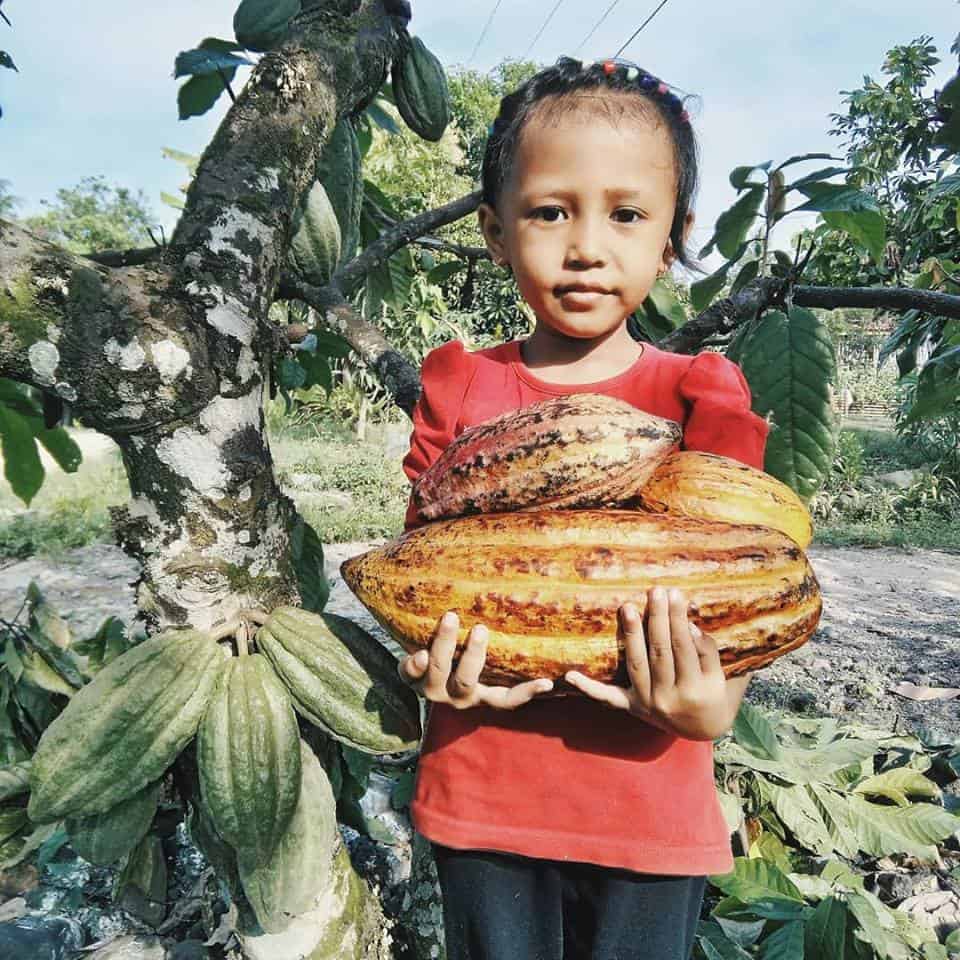
95% of the cocoa plantation land is owned by smallholders who practice poor farming techniques – ageing cocoa trees in Indonesia – planted mostly in the 1980s – are more vulnerable to disease, yet farmers can’t afford to buy fertilizers or pesticide. Because of low productivity and income levels, smallholders often resort to illegal logging and poaching in the protected conservation areas near their plantation to make ends meet.
Mustopo has soon recognized the crux of the problem – a fragmented value chain, where cocoa traders have no connection to the manufacturers, and manufacturers know nothing about the farmers. She devised a simple business model to tackle this systemic issue: “Why don’t we train farmers on sustainable farming methods and pay them more for their beans, by selling high-quality chocolate at a premium price?”
The incumbent business players were reluctant to adopt a different operating model, so she eventually decided to start out on her own, aspiring to reform the system on the ground.
Educating farmers to become guardians of their ecosystem
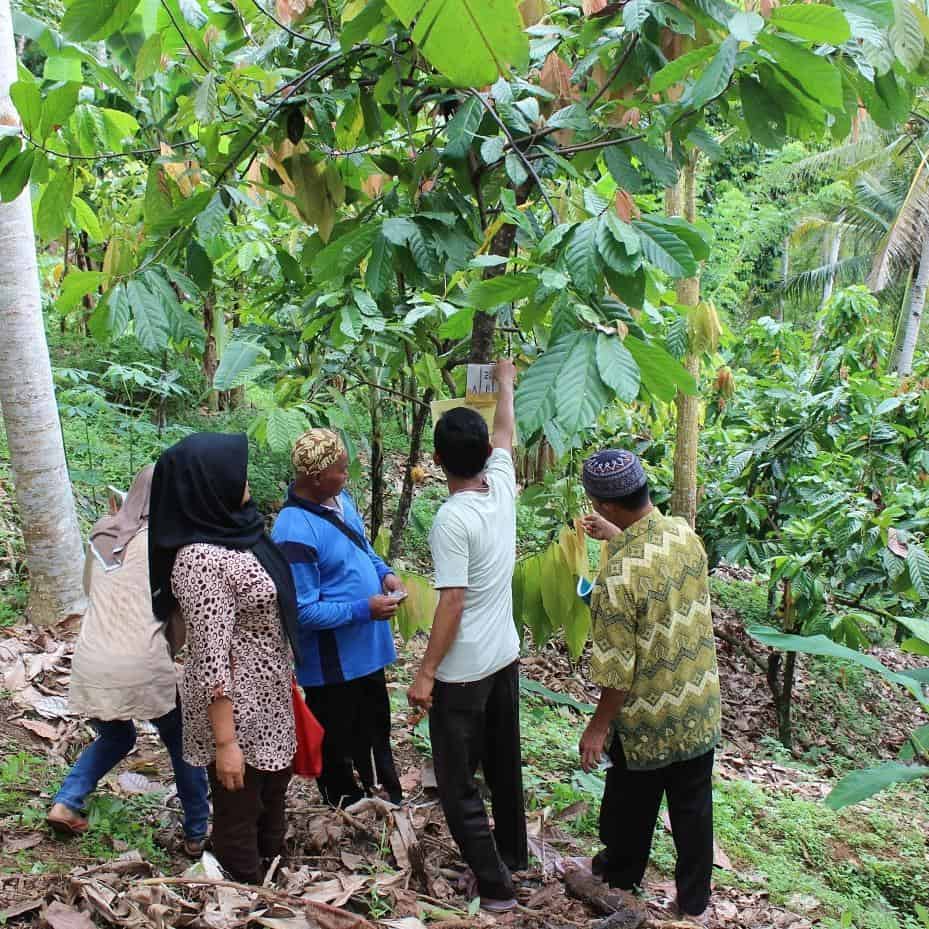
Krakakoa offers farmers a two- to four-month training program, which covers everything related to sustainable farming, from fermentation to integrated pest management techniques, as well as practical business skills such as financial management. The social enterprise teaches farmers how to make organic compost from animal waste and tree cuttings, how to produce liquid fertilizer from the residues of the fermentation process, and how to keep farms clean to prevent fungi from spreading. Upon graduation, farmers are provided with farming tools and continued support from the Krakakoa trainers.
Related Post: Meet The Organic Chocolate Company Built On Beautiful Design, Transparency, & Sustainability
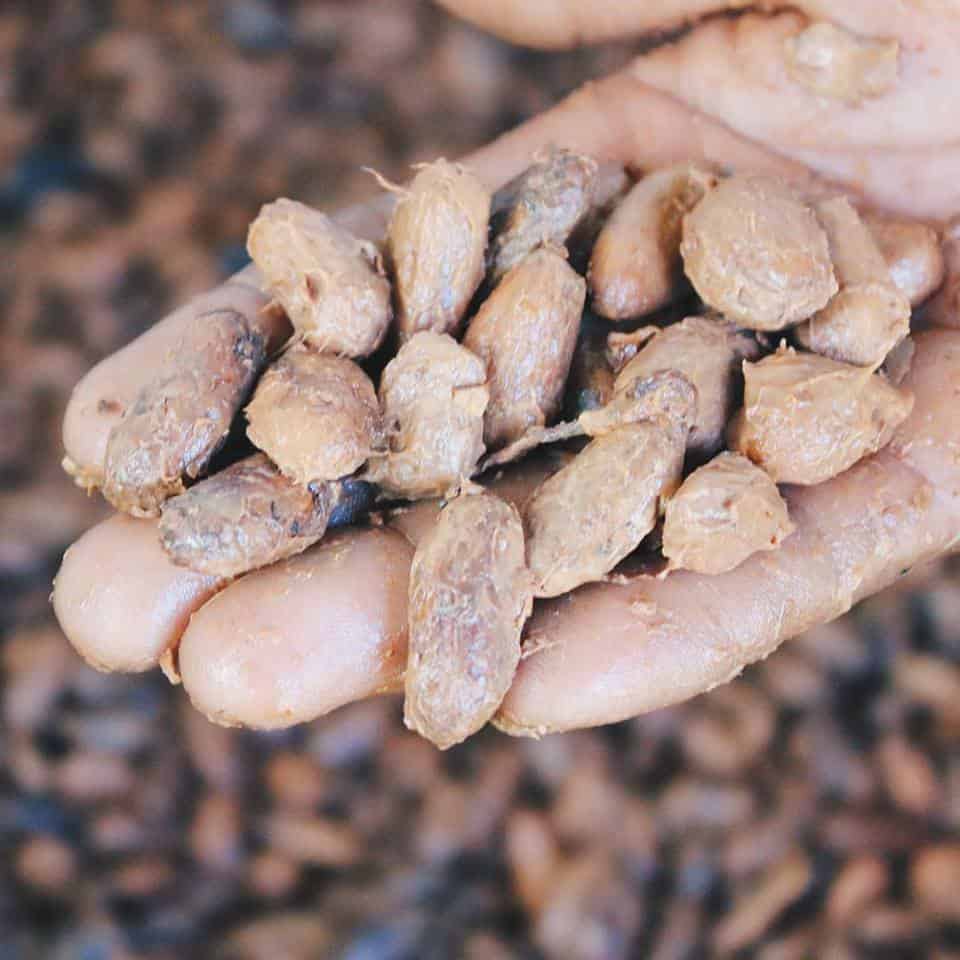
By leveraging advanced, organic farming methods mastered during the course, farmers produce higher-quality beans, which are bought by Krakakoa at three to four times the market price (over USD4/kg) and which serve as key ingredients in the social venture’s cocoa-based products. Proceeds from Krakakoa’s sales, in return, go towards improving and expanding the agricultural curriculum to communities across the archipelago.
“Krakakoa is an exploration in how business can be used to tackle some of the biggest challenges in the world today. In setting up a business model that is climate-compatible and equitable right from the start, we hope to show that it is possible to balance both purpose and profits. No doubt is it more challenging than setting up a pure non-profit or a profit-maximizing entity, but to me, it is far more rewarding”, shares Mustopo.
Krakakoa strives to empower farmers to become stewards of the ecosystem, and educate them on both the tangible and intangible values of biodiversity – by discouraging smallholders from poisoning and killing the critically endangered Asian elephant, for instance, which was a common occurrence in the past.
Improving livelihoods: achieving a tangible social impact
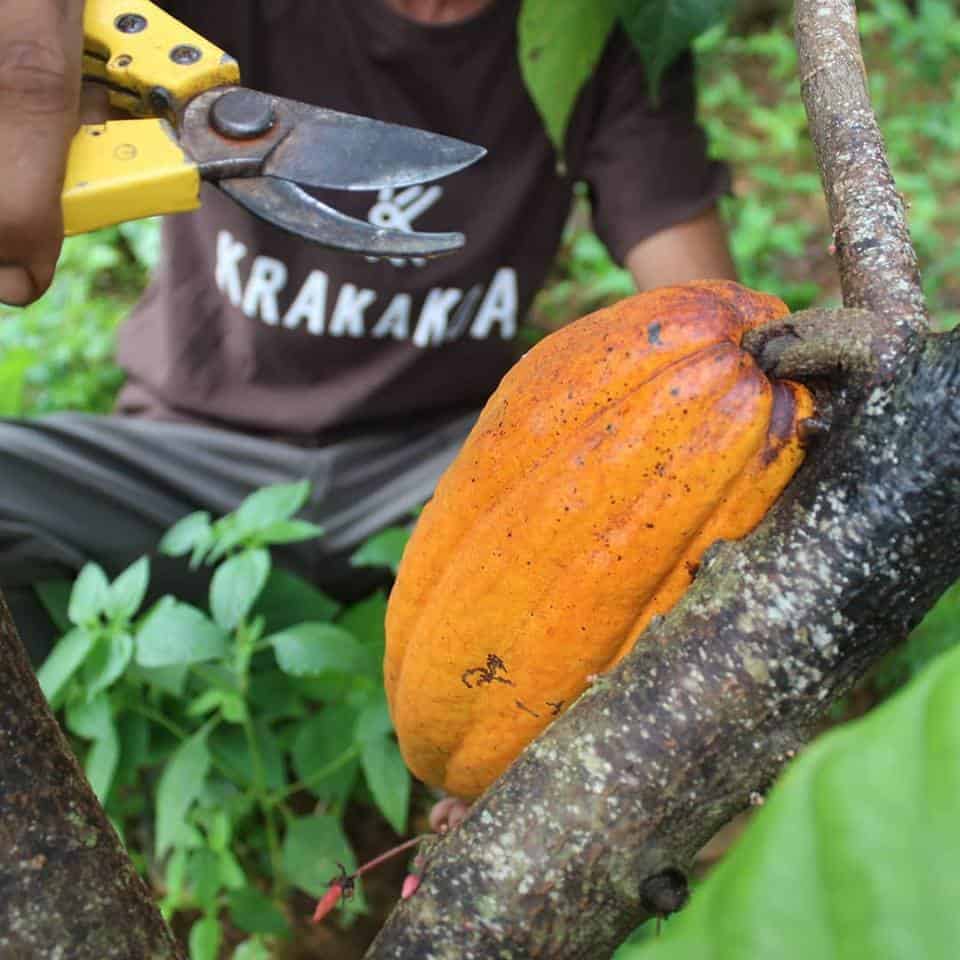
Krakakoa carries out regular quantitative surveys to measure the productivity and income levels of the farmers: how much cocoa is produced per hectare, how much cocoa was sold to Krakakoa and the rest of the market, and at what price.
The social venture to date has trained over a thousand farmers who in turn were able to increase their income by 400% through a combination of better yields, more efficient farm management and the price premiums offered by Krakakoa.
They also look at qualitative factors to evaluate whether increased productivity and revenue translate into livelihood benefits – in the impoverished villages of Sulawesi, Sumatra and Bali, a functioning toilet and sturdier flooring (switching from mud to cement) are often indicators of someone’s improved standard of living.
When asked for examples where she felt Krakakoa’s work has made a positive difference to the lives of the local communities, Mustopo recounts the story of Taufik, the social enterprise’s lead farmer in the village of Tanjung Rejo. He was one of the first to be trained by the social venture, and has taught them so many valuable lessons about sustainable agriculture in return, shares Mustopo.
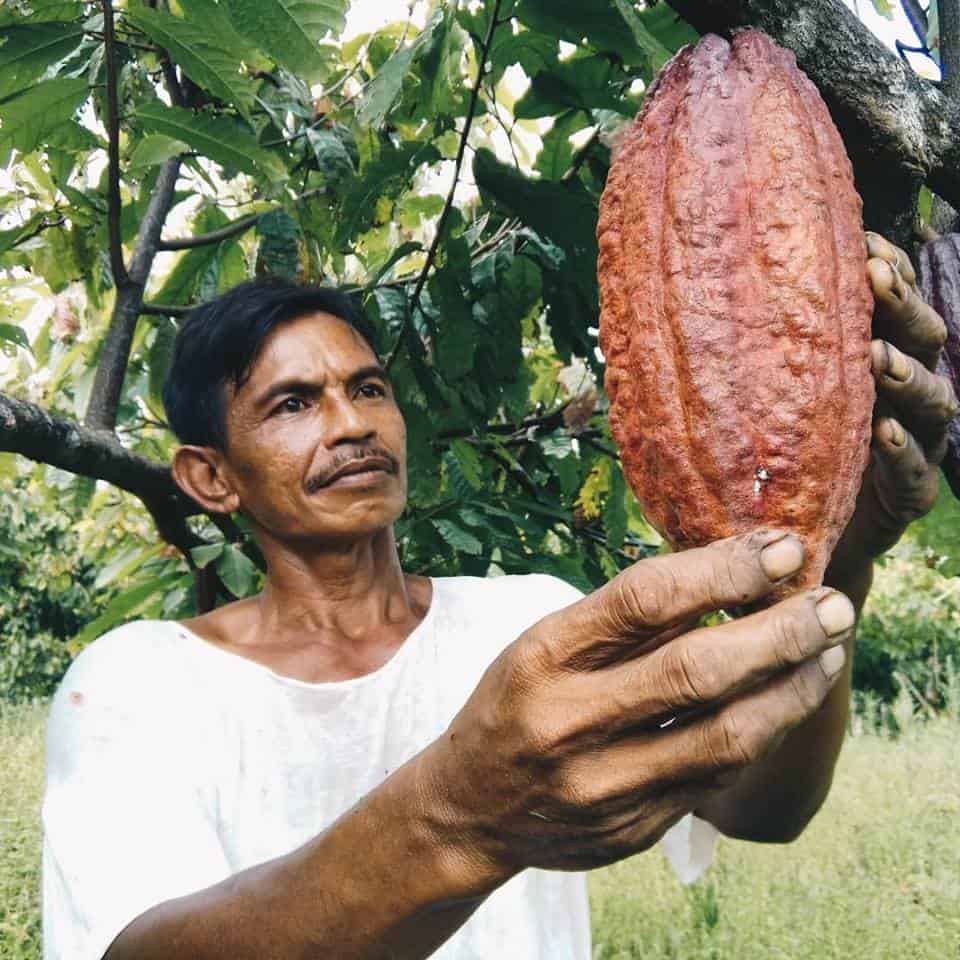
Taufik has carried out experiments to see if drying the cocoa beans will speed up the fermentation process, and has made valuable suggestions to improve the training and cultivation practices, including recommendations for the use of more climate-resilient seedlings. Mustopo recalls fondly how Taufik one day showed up to work with the brightest smile on his face – he proudly shared that his increased income allowed him to buy his first car and send his children to school.
Top tips for social entrepreneurs of the future
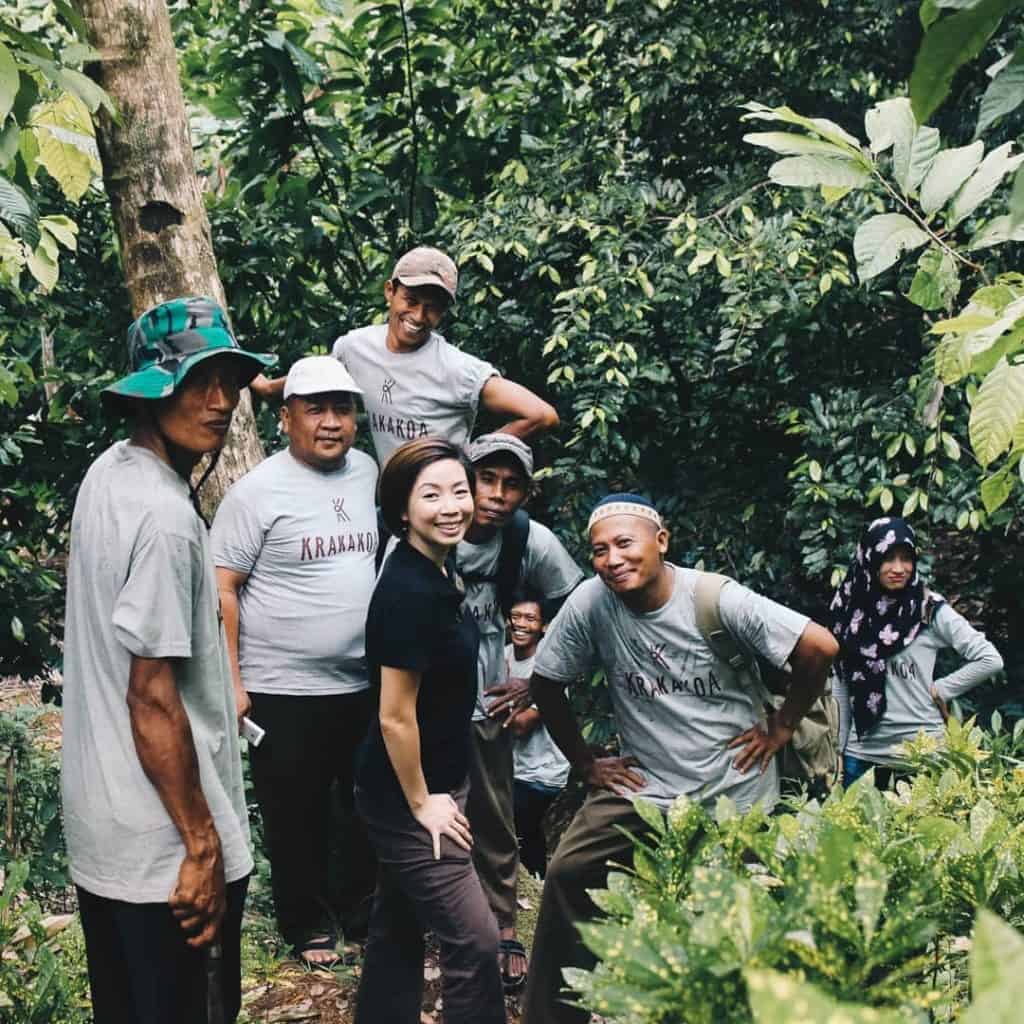
As we wrap up our interview, Mustopo leaves us with valuable advice on the key challenges faced by social entrepreneurs today, and some of the main lessons she has learnt on her own journey.
- Go in with the right mindset: “Attitude is often why social ventures fail. Prepare to go on a rewarding, but challenging adventure, which is why tenacity and endurance are so important skills to have. It’s blind faith in a way. I firmly believe that if there is a will, there is a way – against all the odds. It can be wonderful, but also horrific, and you need to brace yourself for it.”
- Don’t underestimate the amount of resources you might need: “Whatever amount of money or time you think you will need, multiply it by two or three. If you are building a factory, for instance, think about what’s going to happen if the power cuts out, and if the government intervenes in your operations. Give yourself a lot more buffer room, and always prepare for the unexpected.”
- Find the right people: “To get volunteers to help you for six months is easy, but to attract people who are in it for the long haul, working for less than the market rate, can be challenging.”
- Build a robust support system: “Finding entrepreneurs who have gone through the same process to be your mentors is priceless.”
- Don’t overthink things: “Take a leap of faith, focus on making the bold, brave and right decision, and don’t hesitate to get your hands dirty.”








